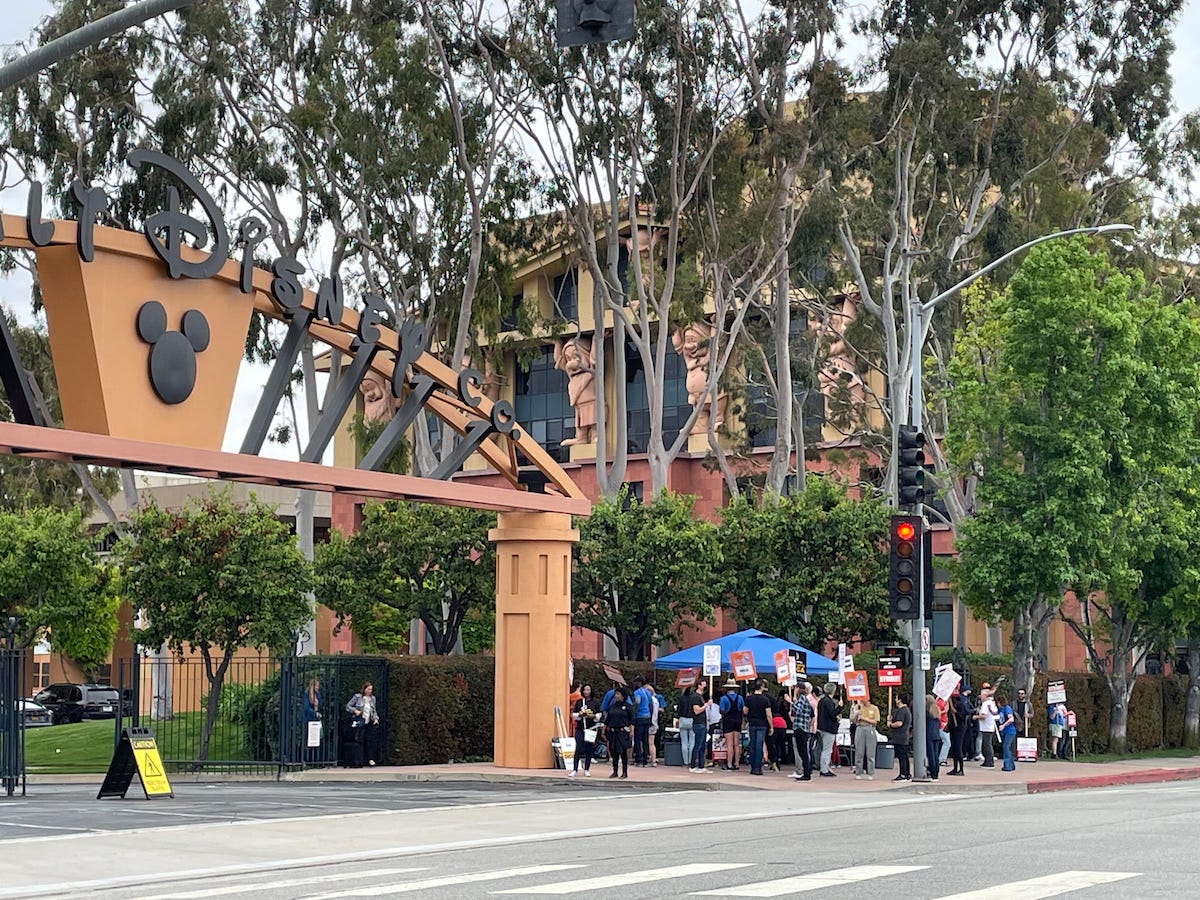Scouting Hollywood: Oct. 5-11
A roundup of news, gossip and history of the entertainment business brought to you from Hollywood, Calif.
The Writers Guild (WGA) has agreed to settle with the Alliance of Motion Picture and Television Producers (AMPTP) after a nearly 150-day work stoppage. The main sticking points have been wages, residuals (the continued payment for creative work as a finished product is aired on various services or for periods of time) as well as the staffing levels and guaranteed weeks of work. The use of Artificial Intelligence (AI) is also something the writers and actors are fighting. After weeks of no talks between the negotiators, the heads of the major studios such as Disney, Universal, Warner Bros/Discovery, Netflix and Amazon came to the bargaining table and were able to conclude a deal, the details of which will need to be voted on by the members before work re-starts. A summary of the deal (which still needs to be ratified by the membership, but based on a friend’s account of a recent WGA membership meeting it will pass overwhelmingly) includes a 12.5 percent minimum salary increase across the three-year agreement; a half percent increase of company contributions to the health fund; the first-ever limits on use of AI in creation of scripts; increases in residual payments and more work for writers on series. Still in the wings is an agreement with the Screen Actors Guild, which continues to picket. Wonder if the president will make it to Hollywood for another photo op with striking workers?
One issue that the studios and talent have argued over in the ongoing strikes is how streaming services such as HBO Max, Netflix and Disney+ fail to disclose viewership of projects. Only in limited ways and on highly successful projects do they mention any metrics, unlike traditional network TV and feature films whose success, or lack thereof, is news each week. The streamers tend to pay more “upfront” to “buyout “ any later participation by the talent. Conversely, features and network TV pay residuals to the writers and actors based on the success of the projects. Without knowing what shows are hits, the talent is at a disadvantage when negotiating. The streamers say the talent is better off getting more upfront. Unfortunately, since show orders are usually for only six to 10 episodes at a time, the pie is smaller than the more usual 13-22 episodes previously ordered each season on network television projects.
Keep reading with a 7-day free trial
Subscribe to The Dakota Scout to keep reading this post and get 7 days of free access to the full post archives.






